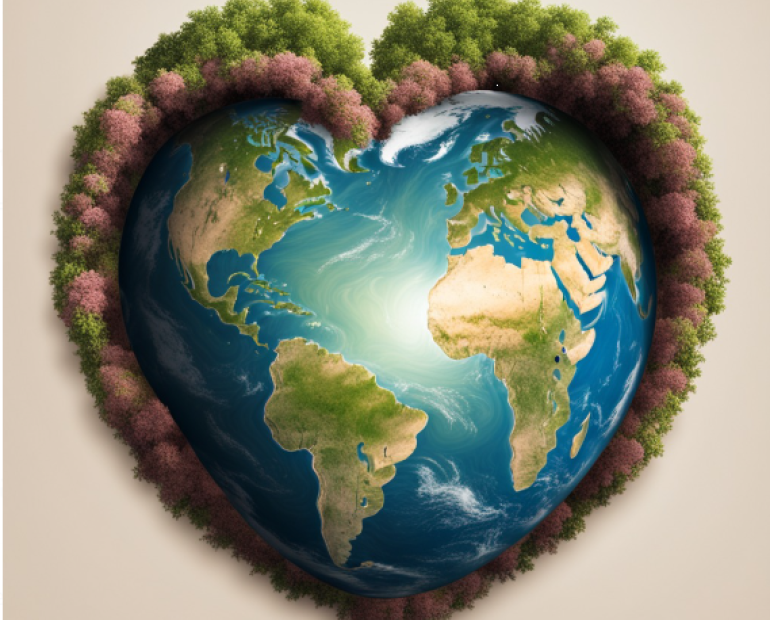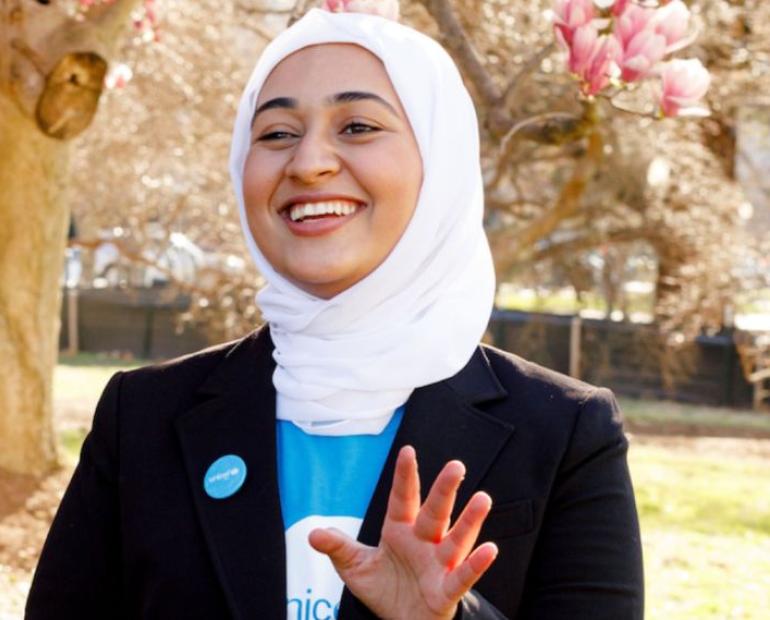
Have you asked yourself what the youth climate movement is doing during the COVID-19 crisis? We are still fighting for climate justice!
April 22, Earth Day, was our first global mobilization of the year. We had planned 3 days in a row of actions, starting on Wednesday, and ending on Friday with our famous strike; but now, with the global health crisis of COVID-19, every action planned had to be cancelled or modified. The whole world is on a mission to fight and survive this pandemic, but the fight for climate justice cannot be stopped.
The arrival of COVID-19 meant a radical change not only for the International Community, but also for each young person in their individuality, from the global economy and politics to our daily lives, from how we study to how we socialize with our friends and family.
If our future is uncertain, emphasizing the current pandemic, we better not imagine what awaits us if we continue to contribute to climate change, because even the Intergovernmental Panel on Climate Change, in 2018, established that we have less than a decade to change and move towards to a more sustainable lifestyle, because, if we do not, the planet will lose its capacity for self balance leading us to a new D-Day, but this time we will all lose the war.
2019 was a year where the youth-led climate movement took the lead in the fight for climate and social justice, we saw young people go on strike every Friday at the local, national and even international level with the ultimate aim of pressuring their governments to declare a climate emergency and to take real and effective action to mitigate the effects of climate change - meeting the 1.5 degree target set in the Paris Agreement -, but we also saw powerful speeches at world conferences and forums challenging the world leaders and even the System itself.
All this made 2020 look very promising for youth climate activism, yet like any other sphere of society, COVID-19 left us adrift and in need of changing all our plans and activities until further notice.
During the last month, as we got used to the lockdown and to the new world order where social distancing prevails, we joined in a way never seen before, without borders, to continue acting in favor of the climate fight, even in these times, where our fundamental tool has been the technology.
The world has moved to virtuality and so have we, our strikes have been virtual for the last 6 weeks, several organizations and movements are holding webinars and series that can be seen on youtube and other social platforms, and others are organizing campaigns for Earth Day, always seeking to amplify the voices of activists of all around the world and recognizing that every individual and collective action counts; of course, accompanied by endless video calls with activists from all corners of the planet.
Each crisis needs to be addressed as an engine of change and transformation; COVID-19 is showing us how fragile but interconnected we are and that our relationship with nature is as fundamental as washing our hands for more than 20 seconds.
Our lives after this pandemic will not be the same that's why we need to use this experience to rethink our relationship with the Planet and with Humanity.
This past month we, young people, have not only seen and experienced moments of fear, stress and uncertainty but we have also seen how society, governments and the International Community have come together and provided a new sense of hope; this definitely includes on how we activists came together and managed to not only plan, but also carry out weekly online strikes and even a three day global event for this week in commemoration of Earth Day.
The climate crisis is the mother of all other injustices, it responds to a systematic and structural problem that has been happening since the Industrial Revolution, this means that our contribution is minimal but we are the age group most affected, most of us are not yet old enough to vote and our participation in climate governance spaces is often criticized and even delegitimized; nevertheless, we are the ones who lead it and we take it as our own because it is our duty, and, because we are talking about a human rights problem, about the rights of children and youth and of our own future.
My desire is that, when we will be able to resume our lives, we will be able to extrapolate what we have learned at this juncture such as working together from the multilateralism, intergenerationality and transversality, and projecting it into climate action because we already have the tools and knowledge but we need global willingness.






